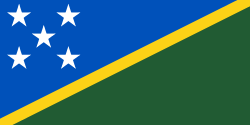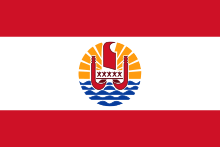The 1998 FIFA World Cup AFC–OFC qualification play-off was a two-legged home-and-away tie between the winners of the Oceania qualifying tournament, Australia, and the losing team in the AFC play-off from the Asian qualifying tournament, Iran. The games were played on 22 and 29 November 1997 in Tehran and Melbourne respectively. Australia was hoping to play in the FIFA World Cup for the first time since 1974 and Iran in 1978.
Background
| Iran |
Round |
Australia |
|
|
Final standings |
| Team |
Pld |
W |
D |
L |
GF |
GA |
GD |
Pts |
 Australia Australia |
4 | 4 | 0 | 0 | 26 | 2 | 24 | 12 |
 Solomon Islands Solomon Islands |
4 | 1 | 1 | 2 | 7 | 21 | −14 | 4 |
 Tahiti Tahiti |
4 | 0 | 1 | 3 | 2 | 12 | −10 | 1 |
|
|
| Opponent |
Result |
Final round |
Opponent |
Result |
 Japan (N) Japan (N) |
2–3 (a.e.t.) |
1st leg |
 New Zealand (A) New Zealand (A) |
2–0 |
| 2nd leg |
 New Zealand (H) New Zealand (H) |
4–1 |
|
Play-off match
First leg
Prior to arrival in Tehran, Terry Venables and others involved in the Australian national team had made negative comments about Iran, stating it as being dangerous, and going so far as to bring their own drinking water for their stay.
The first leg of the play-off, on 22 November 1997, took place in Tehran, Iran, with the result a 1–1 draw. Attendance for this match was extremely high, as 128,000 fans packed Azadi Stadium, despite it only having a capacity for 100,000 fans at the time.[1]
Full of confidence after this result, the Australian team came to the second leg in Melbourne believing they could progress to their first FIFA World Cup in 24 years.
Iran  v
v  Australia
Australia
22 November 1997 15:30 ( IRST) |
Second leg
The second leg, held on 29 November at the Melbourne Cricket Ground, had a crowd of over 95,000.
With Australia holding a 1–0 lead at half-time and scoring a second goal just after the break, it looked likely that they would progress to the World Cup. Immediately following Australia's second goal, serial pest Peter Hore cut up Iran's goal net, causing a halt in play. However, Australia's dominance continued until a controversial booking of Harry Kewell following a collision with Iranian goalkeeper Ahmad Reza Abedzadeh in the 72nd minute. This seemed to quell the Australians' momentum, as an Iranian revival, led by Khodadad Azizi, saw Iran score two quick goals to make the score 3–3 on aggregate, with Iran progressing on away goals.
Despite being undefeated throughout their entire qualifying campaign, Australia had again failed to qualify for the World Cup finals. Along with host nation and eventual winner France (who as host nation did not need to qualify), and Saint Kitts and Nevis, Australia were one of three teams to not lose a game in the entire campaign.
The match is considered by many Australians as one of the most tragic moments in their sporting history. The broadcast of the game on SBS featured closing comments from a clearly distraught Les Murray and Johnny Warren, with Warren openly weeping on air.
Australia  v
v  Iran
Iran
29 November 1997 20:15 ( AEDT) |
|
OFFICIALS
- Assistant referees:
- Fourth official: Attila Hanacsek (Hungary)
|
MATCH RULES
- 90 minutes
- 30 minutes of extra-time if necessary
- Penalty shoot-out if scores still level:
- 3 (of 7) substitutions permitted
|
Aftermath
Iran qualified for the 1998 FIFA World Cup Finals in France and were drawn into Group F with Germany, Yugoslavia and USA. After losing 1–0 to Yugoslavia in their opening match, Iran defeated USA 2–1 with goals from Estili and Mahdavikia. In the final match they lost 2–0 to Germany, finishing third in the group on three points.
Australia qualified for the 1997 FIFA Confederations Cup as Oceania Nations Cup winners. The Socceroos were drawn into a group with Brazil, Mexico and host nation Saudi Arabia. In the opening match they defeated Mexico 3–1, then secured a memorable nil-all draw with World Cup holders Brazil. Australia lost the last match against Saudi Arabia 1–0, but still finished second in the group on four points, proceeding to the semi-final stage. Against Uruguay, a goal from Harry Kewell in extra time secured a 1–0 win and a place in the final against Brazil. Australia were crushed 6–0 by Brazil, leaving the side with the silver medal.
References
External links
|
|---|
|
| General | |
|---|
|
| Venues | |
|---|
|
| Statistics | |
|---|
|
| Players | |
|---|
|
| World Cup Finals | |
|---|
|
| AFC Asian Cup Finals | |
|---|
|
| Other tournaments | |
|---|
|
| Culture | |
|---|
|
| Senior | |
|---|
|
| Other Iran teams | |
|---|

